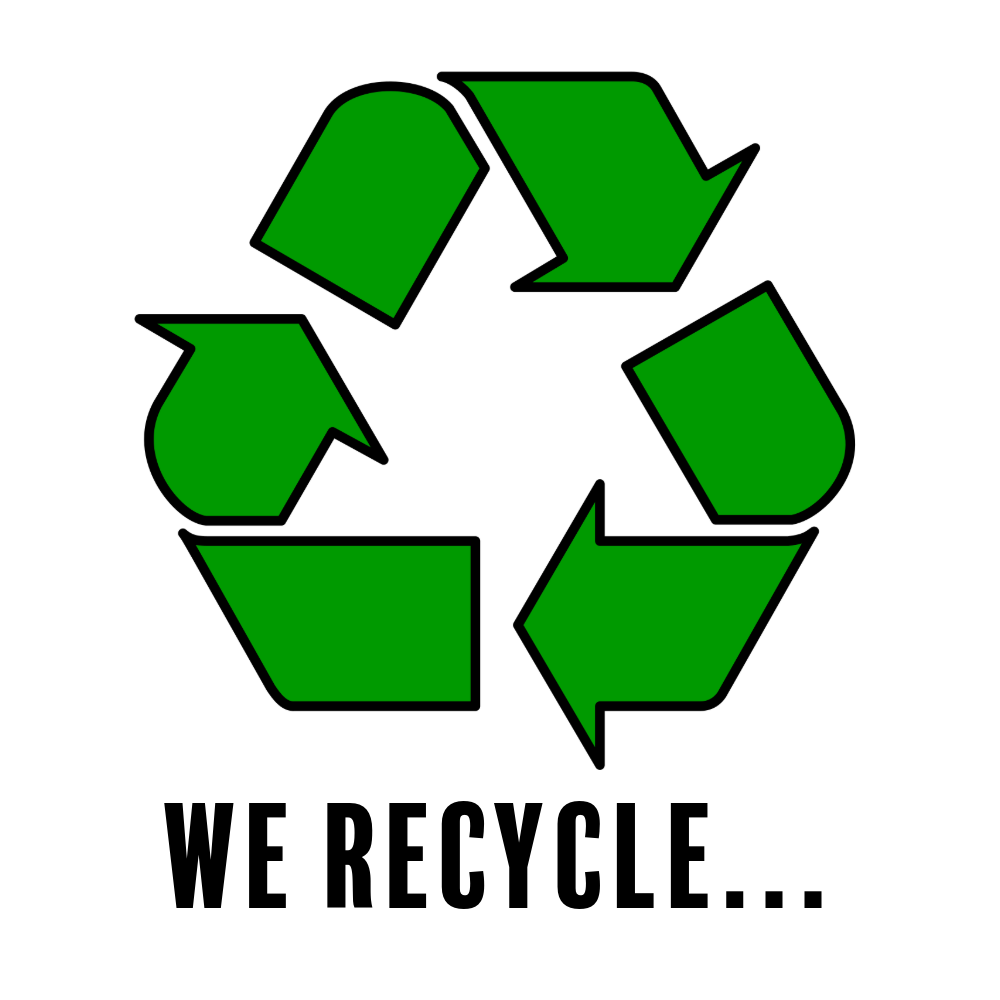
TERMS and CONDITIONS
Important Information – Read our terms and conditions for a clear overview of our rules and agreements.
These General Terms and Conditions of Webshop Trustmark have been established in consultation with the Consumers` Association as part of the Self-Regulation Coordination Group (CZ) of the Social and Economic Council and will enter into effect on June 1, 2014.
These General Terms and Conditions will be used by all members of the Webshop Trustmark, with the exception of financial services as defined in the Financial Supervision Act and to the extent that these services are subject to supervision by the Authority for Financial Markets (Autoriteit Financiële Markten).
Table of Contents:
Article 1 - Definitions
Article 2 - Identity of the Entrepreneur
Article 3 -Applicability
Article 4 - The Offer
Article 5 - The Agreement
Article 6 - Right of Withdrawal
Article 7 - Consumer`s Obligations During the Cooling-Off Period
Article 8 - Exercise of the Right of Withdrawal by the Consumer and Its Costs
Article 9 - Entrepreneur`s Obligations in Case of Withdrawal
Article 10 - Exclusion of the Right of Withdrawal
Article 11 - The Price
Article 12 - Compliance and Additional Warranty
Article 13 - Delivery and Performance
Article 14 - Long-Term Transactions: Duration, Termination, and Renewal
Article 15 - Payment
Article 16 - Complaints Procedure
Article 17 - Disputes
Article 18 - Sector Guarantee
Article 19 - Additional or Deviating Provisions
Article 20 - Amendment of the General Terms and Conditions of Webshop Trustmark
Article 1 - Definitions
In these terms and conditions, the following definitions apply:
1. Supplementary Agreement: an agreement in which the consumer acquires products, digital content, and/or services in connection with a distance contract, and these items, digital content, and/or services are supplied by the entrepreneur or by a third party based on an agreement between that third party and the entrepreneur;
2. Cooling-Off Period: the period within which the consumer can exercise their right of withdrawal;
3. Consumer: the natural person who does not act for purposes related to their commercial, business, craft, or professional activity.
4. Day: calendar day.
5. Digital Content: data produced and supplied in digital form.
6. Long-Term Contract: an agreement that aims to regularly supply goods, services, and/or digital content over a specified period.
7. Durable Data Carrier: any tool, including email, that allows the consumer or entrepreneur to store information personally addressed to them in a way that enables future access or use during a period tailored to the purpose for which the information is intended and allows unchanged reproduction of the stored information.
8. Right of Withdrawal: the consumer`s ability to withdraw from a distance contract during the cooling-off period.
9. Entrepreneur: the natural or legal person who is a member of the Webshop Trustmark and offers products, (access to) digital content, and/or services to consumers at a distance.
10. Distance Contract: an agreement concluded between the entrepreneur and the consumer within the framework of an organized system for distance selling of products, digital content, and/or services, where exclusive or partial use of one or more means of remote communication is made up to and including the conclusion of the contract.
11. Model Withdrawal Form: the European model withdrawal form included in Attachment I of these terms;
12. Distance Communication Technique: a means that can be used for concluding an agreement without the need for the consumer and the entrepreneur to be physically present in the same location simultaneously;
Article 2 - Identity of the Entrepreneur
Name of Entrepreneur: Kenko Retro-en-Design VOF / Adri Koorevaar
Registered Address: Vossiusstraat 55, 3314BV Dordrecht, Netherlands
Telephone Number and Hours During Which the Entrepreneur Can Be Reached: 06-18766327 Monday to Saturday 10:00 AM - 5:00 PM - ECT (European Central Time)
Email Address: info@retro-en-design.nl
Chamber of Commerce (KvK) Number: 62923277
VAT Identification Number: NL855016140B01
Article 3 – Applicability
1. These general terms and conditions apply to every offer made by the entrepreneur and to every distance contract concluded between the entrepreneur and the consumer.
2. Prior to the conclusion of the distance contract, the text of these general terms and conditions shall be made available to the consumer. If this is not reasonably possible, the entrepreneur shall, before the distance contract is concluded, indicate how the general terms and conditions can be viewed at the entrepreneur`s premises and that they will be sent to the consumer free of charge upon request as soon as possible.
3. If the distance contract is concluded electronically, in deviation from the previous paragraph and before the distance contract is concluded, the text of these general terms and conditions can be made available to the consumer electronically in such a way that the consumer can easily store it on a durable data carrier. If this is not reasonably possible, it shall be indicated before the distance contract is concluded that the general terms and conditions can be consulted electronically and that they will be sent to the consumer free of charge by electronic means or in another appropriate manner upon request.
4. In the event that specific product or service conditions are also applicable in addition to these general terms and conditions, the second and third paragraphs shall apply mutatis mutandis, and in the event of conflicting conditions, the consumer may always invoke the provision that is most favourable to them.
Article 4 – The Offer
1. If an offer has a limited validity period or is subject to conditions, this shall be explicitly stated in the offer.
2. The offer includes a complete and accurate description of the products, digital content, and/or services offered. The description is detailed enough to enable the consumer to make a proper assessment of the offer. If the entrepreneur uses images, these are a truthful representation of the offered products, services, and/or digital content. Obvious mistakes or errors in the offer do not bind the entrepreneur.
3. Each offer contains information in such a way that it is clear to the consumer what rights and obligations are associated with the acceptance of the offer.
Article 5 - The Agreement
1. The agreement is concluded, subject to the provisions of paragraph 4, at the moment of acceptance by the consumer of the offer and compliance with the conditions specified therein.
2. If the consumer has accepted the offer electronically, the entrepreneur shall immediately confirm the receipt of the acceptance of the offer electronically. Until the entrepreneur has confirmed the receipt of this acceptance, the consumer may dissolve the agreement.
3. If the agreement is concluded electronically, the entrepreneur shall take appropriate technical and organizational measures to secure the electronic transfer of data and provide a secure web environment. If the consumer can pay electronically, the entrepreneur shall take suitable security measures for that purpose.
4. Within the legal framework, the entrepreneur may ascertain whether the consumer can meet their payment obligations, as well as all the facts and factors that are important for entering into the distance agreement responsibly. If, based on this investigation, the entrepreneur has good grounds not to enter into the agreement, they are entitled to refuse an order or application with reasons or to attach special conditions to the execution.
5. The entrepreneur shall provide the following information to the consumer in writing or in such a way that it can be stored by the consumer in an accessible manner on a durable medium at the latest upon delivery of the product, service, or digital content:
a. The visiting address of the entrepreneur`s establishment where the consumer can address complaints.
b. The conditions under which and the manner in which the consumer can exercise the right of withdrawal or a clear statement regarding the exclusion of the right of withdrawal.
c. Information about warranties and existing after-sales services.
d. The price, including all taxes, of the product, service, or digital content; where applicable, the cost of delivery; and the method of payment, delivery, or execution of the distance agreement.
e. The requirements for terminating the agreement if the agreement has a duration of more than one year or is of indefinite duration.
f. If the consumer has a right of withdrawal, the withdrawal form.
6. In the case of a continuing performance contract, the provision in the previous paragraph only applies to the initial delivery.
Article 6 - Right of Withdrawal
For Products:
1. The consumer has the right to withdraw from a contract for the purchase of a product within a cooling-off period of at least 14 days, without stating any reasons. The entrepreneur may ask the consumer for the reason for withdrawal but may not compel the consumer to provide such reasons.
2. The cooling-off period mentioned in paragraph 1 commences on the day after the consumer, or a third party designated by the consumer who is not the carrier, has received the product, or:
a. if the consumer has ordered multiple products in the same order: the day on which the consumer, or a third party designated by them, received the last product. The entrepreneur may refuse an order for multiple products with different delivery times, provided that they have clearly informed the consumer of this before the ordering process.
b. if the delivery of a product consists of multiple shipments or parts: the day on which the consumer, or a third party designated by them, received the last shipment or part;
c. in contracts for the regular delivery of products over a specified period: the day on which the consumer, or a third party designated by them, received the first product.
For Services and Digital Content not supplied on a tangible medium:
3. The consumer has the right to withdraw from a service contract and a contract for the supply of digital content not supplied on a tangible medium within a cooling-off period of at least 14 days, without stating any reasons. The entrepreneur may ask the consumer for the reason for withdrawal but may not compel the consumer to provide such reasons.
4. The cooling-off period mentioned in paragraph 3 commences on the day following the conclusion of the contract.
Extended Cooling-off Period for Products, Services, and Digital Content not supplied on a tangible medium in case of non-disclosure of the right of withdrawal:
5. If the entrepreneur has not provided the consumer with the legally required information on the right of withdrawal or the withdrawal form, the cooling-off period shall expire twelve months after the end of the original cooling-off period established in accordance with the previous paragraphs of this article.
6. If the entrepreneur provides the information referred to in the preceding paragraph to the consumer within twelve months from the start date of the original cooling-off period, the cooling-off period shall expire 14 days after the day on which the consumer receives that information.
Article 7 - Consumer`s Obligations During the Cooling-Off Period
1. During the cooling-off period, the consumer shall handle the product and its packaging with care. They shall only unpack or use the product to the extent necessary to determine the nature, characteristics, and functioning of the product. The principle here is that the consumer may only handle and inspect the product as they would be allowed to do in a physical store.
2. The consumer is only liable for any depreciation in the value of the product resulting from handling the product beyond what is allowed in paragraph 1.
3. The consumer is not liable for any depreciation in the value of the product if the entrepreneur did not provide all the legally required information about the right of withdrawal before or at the time of concluding the contract.
Article 8 - Exercise of the Right of Withdrawal by the Consumer and Associated Costs
1. If the consumer wishes to exercise their right of withdrawal, they shall notify the entrepreneur within the cooling-off period by using the standard withdrawal form or by any other unequivocal method.
2. The consumer shall return the product as soon as possible, but no later than 14 days after the day following the notification referred to in paragraph 1, or they shall hand it over to the entrepreneur or an authorized representative thereof. This is not necessary if the entrepreneur has offered to collect the product themselves. The consumer shall have complied with the return period if they return the product before the cooling-off period expires.
3. The consumer shall return the product with all accessories delivered, if reasonably possible, in its original condition and packaging, and in accordance with the reasonable and clear instructions provided by the entrepreneur.
4. The risk and burden of proof for the correct and timely exercise of the right of withdrawal shall lie with the consumer.
5. The consumer shall bear the direct costs of returning the product. If the entrepreneur has not informed the consumer that they must bear these costs, or if the entrepreneur indicates that they will bear the costs themselves, the consumer shall not be obliged to bear the return costs.
6. If the consumer withdraws after explicitly requesting that the provision of the service or the supply of gas, water, or electricity not made ready for sale in a limited volume or quantity begin during the cooling-off period, the consumer shall owe the entrepreneur an amount proportional to the part of the commitment that the entrepreneur has fulfilled at the time of withdrawal, compared to the full performance of the commitment.
7. The consumer shall not bear costs for the performance of services or the supply of water, gas, or electricity not made ready for sale in a limited volume or quantity, or for district heating supply, if:
a. the entrepreneur has not provided the consumer with the legally required information about the right of withdrawal, the reimbursement of costs upon withdrawal, or the standard withdrawal form; or
b. the consumer has not expressly requested the commencement of the performance of the service or the supply of gas, water, electricity, or district heating during the cooling-off period.
8. The consumer shall not bear costs for the full or partial supply of digital content not supplied on a tangible medium if:
a. they have not expressly agreed to the commencement of the performance of the agreement before the end of the cooling-off period;
b. they have not acknowledged losing their right of withdrawal when granting their consent; or
c. the entrepreneur has failed to confirm this statement from the consumer.
9. If the consumer exercises their right of withdrawal, all supplementary agreements shall be automatically terminated.
Article 9 - Obligations of the Entrepreneur in Case of Withdrawal
1. If the entrepreneur allows the consumer to make a withdrawal notification electronically, they shall promptly send an acknowledgement of receipt after receiving this notification.
2. The entrepreneur shall reimburse all payments made by the consumer, including any delivery costs charged by the entrepreneur for the returned product, without undue delay and no later than 14 days following the day on which the consumer notifies them of the withdrawal. Unless the entrepreneur offers to collect the product themselves, they may wait to reimburse until they have received the product or until the consumer provides proof of having returned the product, whichever occurs earlier.
3. The entrepreneur shall use the same means of payment that the consumer used for the refund unless the consumer agrees to a different method. The refund shall be made at no cost to the consumer.
4. If the consumer has opted for a more expensive method of delivery than the cheapest standard delivery, the entrepreneur is not obligated to reimburse the additional costs associated with the more expensive method.
Article 10 - Exclusion of the Right of Withdrawal
The entrepreneur can exclude the following products and services from the right of withdrawal, but only if the entrepreneur has clearly indicated this in the offer, at least in a timely manner before the conclusion of the contract:
1. Products or services whose price is subject to fluctuations in the financial market over which the entrepreneur has no control, and which may occur within the withdrawal period.
2. Agreements concluded during a public auction. A public auction refers to a sales method in which products, digital content, and/or services are offered by the entrepreneur to consumers who are personally present or have the opportunity to be personally present at the auction, conducted by an auctioneer, and where the successful bidder is obliged to purchase the products, digital content, and/or services.
3. Service contracts, after full performance of the service, but only if:
a. the performance has started with the explicit prior consent of the consumer; and
b. the consumer has declared that they lose their right of withdrawal once the entrepreneur has fully performed the contract.
4. Service contracts for the provision of accommodation, where a specific date or period of performance is specified in the contract and which are not for residential purposes, goods transportation, car rental services, and catering.
5. Agreements related to leisure activities, where a specific date or period of performance is specified in the contract.
6. Products made to the consumer`s specifications, which are not prefabricated and which are produced based on an individual choice or decision by the consumer, or which are clearly intended for a specific person.
7. Perishable products or products with a limited shelf life.
8. Sealed products that are not suitable for return due to health or hygiene reasons and whose sealing has been broken after delivery.
9. Products that, by their nature, are irrevocably mixed with other products after delivery.
10. Alcoholic beverages, the price of which has been agreed upon at the time of concluding the contract but whose delivery can only take place after 30 days and whose actual value depends on market fluctuations over which the entrepreneur has no control.
11. Sealed audio, video recordings, and computer software, the sealing of which has been broken after delivery.
12. Newspapers, magazines, or periodicals, except for subscriptions to them.
13. The delivery of digital content not supplied on a tangible medium, but only if:
a. the performance has started with the explicit prior consent of the consumer; and
b. the consumer has declared that they lose their right of withdrawal in this case.
Article 11 - The Price
1. During the validity period stated in the offer, the prices of the offered products and/or services shall not be increased, except for price adjustments due to changes in VAT rates.
2. In deviation from the preceding paragraph, the entrepreneur may offer products or services with prices that are subject to fluctuations in the financial market and over which the entrepreneur has no influence. These fluctuations and the fact that any prices mentioned are target prices shall be stated in the offer.
3. Price increases within 3 months after the conclusion of the contract are only allowed if they result from legal regulations or provisions.
4. Price increases from 3 months after the conclusion of the contract are only allowed if the entrepreneur has stipulated this and:
a. they result from legal regulations or provisions; or
b. the consumer has the right to terminate the contract as of the day on which the price increase takes effect.
5. The prices mentioned in the offer of products or services include VAT.
Article 12 - Performance of the Agreement and Additional Warranty
1. The entrepreneur guarantees that the products and/or services comply with the agreement, the specifications mentioned in the offer, the reasonable requirements of soundness and/or usability, and the legal regulations and/or government regulations existing on the date of the conclusion of the agreement. If agreed, the entrepreneur also guarantees that the product is suitable for purposes other than normal use.
2. An additional warranty provided by the entrepreneur, their supplier, manufacturer, or importer shall never limit the consumer`s legal rights and claims under the agreement in case the entrepreneur has failed to fulfil their part of the agreement.
3. An additional warranty is understood to mean any commitment made by the entrepreneur, their supplier, importer, or manufacturer in which they grant the consumer certain rights or claims that go beyond what they are legally obligated to provide in the event of their failure to fulfil their part of the agreement.
Article 13 - Delivery and Execution
1. The entrepreneur shall exercise the utmost care when receiving orders for products and when assessing requests for the provision of services, as well as during the execution thereof.
2. The place of delivery shall be the address that the consumer has provided to the entrepreneur.
3. Subject to the provisions in Article 4 of these general terms and conditions, the entrepreneur shall execute accepted orders promptly but no later than within 30 days, unless a different delivery period has been agreed upon. If the delivery is delayed or if an order cannot be executed, or can only be partially executed, the consumer shall be informed of this no later than 30 days after placing the order. In such cases, the consumer has the right to terminate the agreement at no cost and is entitled to any compensation for damages.
4. Upon termination in accordance with the preceding paragraph, the entrepreneur shall promptly refund the amount paid by the consumer.
5. The risk of damage and/or loss of products shall rest with the entrepreneur until the moment of delivery to the consumer or a designated representative known to the entrepreneur unless expressly agreed otherwise.
Article 14 - Long-Term Transactions: Duration, Termination, and Renewal
Termination:
1. The consumer may terminate an agreement entered into for an indefinite period which entails the regular delivery of products (including electricity) or services at any time, subject to agreed termination rules and a notice period of no more than one month.
2. The consumer may terminate an agreement entered into for a definite period which entails the regular delivery of products (including electricity) or services at any time at the end of the specified term, subject to agreed termination rules and a notice period of no more than one month.
3. The consumer may terminate the agreements mentioned in the preceding paragraphs:
- at any time and shall not be restricted to termination at a specific time or during a specific period;
- terminate them using the same method as used to enter into the agreements;
- terminate them with the same notice period as that stipulated by the entrepreneur for themselves.
Renewal:
4. An agreement entered into for a definite period and which entails the regular delivery of products (including electricity) or services may not be tacitly renewed or extended for a definite duration.
5. Notwithstanding the previous paragraph, an agreement entered into for a definite period and which entails the regular delivery of daily, news, and weekly newspapers and magazines may be tacitly renewed for a specified duration of up to three months if the consumer can terminate this extended agreement at the end of the extension with a notice period of no more than one month.
6. An agreement entered into for a definite period and which entails the regular delivery of products or services may only be tacitly renewed for an indefinite duration if the consumer is entitled to terminate it at any time with a notice period of no more than one month. The notice period is at most three months if the agreement entails the regular, but less than monthly, delivery of daily, news, and weekly newspapers and magazines.
7. An agreement with a limited duration for the regular delivery of daily, news, and weekly newspapers and magazines (trial or introductory subscription) shall not be tacitly renewed and shall automatically terminate upon the conclusion of the trial or introductory period.
Duration:
8. If an agreement has a duration of more than one year, the consumer may terminate the agreement at any time after one year with a notice period of no more than one month, unless reasonableness and fairness oppose termination before the end of the agreed duration.
Article 15 - Payment
1. Unless otherwise stipulated in the agreement or additional terms, the amounts owed by the consumer must be paid within 14 days from the start of the cooling-off period, or in the absence of a cooling-off period, within 14 days from the conclusion of the agreement. In the case of a service agreement, this period begins on the day after the consumer receives confirmation of the agreement.
2. In the sale of products to consumers, the consumer shall never be obligated, in general terms and conditions, to make an advance payment of more than 50%. If an advance payment is agreed upon, the consumer cannot assert any rights regarding the execution of the relevant order or service(s) until the agreed advance payment has been made.
3. The consumer has a duty to promptly report any inaccuracies in the provided or stated payment details to the entrepreneur.
4. If the consumer fails to meet their payment obligations in a timely manner, after being reminded by the entrepreneur of the overdue payment and having been given a 14-day period by the entrepreneur to meet their payment obligations, the consumer shall be liable for statutory interest on the outstanding amount. The entrepreneur is also entitled to charge the consumer extrajudicial collection costs incurred. These collection costs shall be at most: 15% on outstanding amounts up to €2,500; 10% on the subsequent €2,500; and 5% on the following €5,000, with a minimum of €40. The entrepreneur may deviate from these amounts and percentages to the consumer`s benefit.
Article 16 - Complaints Procedure
1. The entrepreneur has a sufficiently publicized complaints procedure and handles the complaint in accordance with this complaints procedure.
2. Complaints about the performance of the agreement must be submitted to the entrepreneur in full and with a clear description within a reasonable time after the consumer has identified the defects.
3. Complaints submitted to the entrepreneur shall be answered within a period of 14 days from the date of receipt. If a complaint requires a foreseeable longer processing time, the entrepreneur shall respond within the 14-day period with an acknowledgement of receipt and an indication of when the consumer can expect a more detailed response.
4. A complaint about a product, service, or the entrepreneur`s service can also be submitted through a complaint form on the consumer page of the Webshop Trustmark website (https://www.keurmerk.info/en/consumers/complaint/). The complaint will then be sent to both the relevant entrepreneur and Webshop Trustmark.
5. If the complaint cannot be resolved through mutual agreement within a reasonable period or within 3 months of filing the complaint, a dispute arises that is subject to the dispute resolution procedure.
Article 17 - Disputes
1. Dutch law exclusively applies to agreements between the entrepreneur and the consumer to which these general terms and conditions apply.
2. Disputes between the consumer and the entrepreneur concerning the formation or execution of agreements regarding products and services to be provided by this entrepreneur can be submitted by both the consumer and the entrepreneur to the Geschillencommissie Webshop (Webshop Disputes Committee), P.O. Box 90600, 2509 LP The Hague, the Netherlands (www.sgc.nl), taking into account the following:
3. A dispute will only be considered by the Geschillencommissie (Disputes Committee) if the consumer has first submitted the complaint to the entrepreneur within a reasonable time.
4. The dispute must be submitted to the Geschillencommissie in writing within twelve months after the dispute arose.
5. If the consumer wishes to submit a dispute to the Geschillencommissie, the entrepreneur is bound by this choice. If the entrepreneur wishes to do so, the consumer must express in writing within five weeks after a written request by the entrepreneur whether he also wishes this, or if he wishes the dispute to be dealt with by the competent judge. If the entrepreneur does not receive the consumer`s choice within the five-week period, the entrepreneur is entitled to submit the dispute to the competent judge.
6. The Geschillencommissie will issue a decision based on the conditions set forth in its rules (https://www.degeschillencommissie.nl/english/). The decisions of the Geschillencommissie are made by way of binding advice.
7. The Geschillencommissie will not consider a dispute or will cease its consideration if the entrepreneur has been granted a suspension of payment, has been declared bankrupt, or has actually terminated its business activities before the dispute has been heard by the committee and a final decision has been issued.
8. If, in addition to the Geschillencommissie Webshop, another recognized disputes committee affiliated with the Stichting Geschillencommissies voor Consumentenzaken (SGC) or the Klachteninstituut Financiële Dienstverlening (Kifid) is competent, the Geschillencommissie Webshop Trustmark is preferably competent for disputes mainly regarding the method of distance selling or service provision. For all other disputes, the other recognized disputes committee affiliated with SGC or Kifid is competent.
Article 18 - Industry Guarantee
1. Webshop Trustmark guarantees compliance by its members with the binding advice issued by the Geschillencommissie Webshop Trustmark (Webshop Disputes Committee), unless the member decides to submit the binding advice for review by a court within two months of its dispatch. This guarantee is revived if the binding advice remains valid after review by the court and the judgment confirming this has become final. Webshop Trustmark Foundation will pay the consumer up to a maximum amount of €10,000 per binding advice. For amounts exceeding €10,000 per binding advice, €10,000 will be paid. Webshop Trustmark Foundation has an obligation to make reasonable efforts to ensure that the member complies with the binding advice for any amounts above €10,000.
2. To apply this guarantee, it is required that the consumer makes a written claim to Webshop Trustmark Foundation and transfers their claim against the entrepreneur to Webshop Trustmark Foundation.
If the claim against the entrepreneur exceeds €10,000, the consumer will be offered to transfer their claim for the amount exceeding €10,000 to Webshop Trustmark, after which this organization will seek payment in its own name and at its own expense to satisfy the consumer.
Article 19 - Additional or Deviating Provisions
Additional or deviating provisions from these general terms and conditions may not be to the detriment of the consumer and must be recorded in writing or in such a way that the consumer can store them on a durable data carrier in an accessible manner.
Article 20 - Amendment of the General Terms and Conditions of Webshop Trustmark.
1. Webshop Trustmark will not amend these general terms and conditions except in consultation with the Consumentenbond (Consumer Association).
2. Changes to these terms and conditions will only take effect after they have been published in an appropriate manner, provided that in the case of applicable changes during the term of an offer, the most favourable provision for the consumer will prevail.
Address Webshop Trustmark: Weteringschans 108, 1017 XS Amsterdam
(Download the Terms and Conditions as a PDF document.)



















